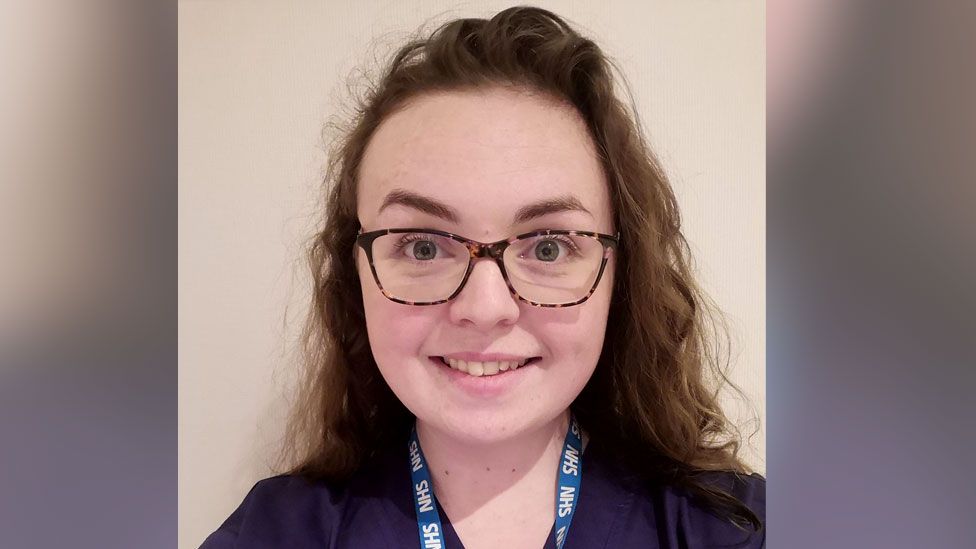Reaction to the idea on social media has been mixed. Here’s what doctors and pharmacists have to say.

image copyrightThinkstock
The government is asking the public whether some contraceptive pills should be sold over the counter without prescription for the first time.
A public consultation running until Friday concerns two progestogen-only pills: Lovima 75 microgram tablets and Hana 75 microgram tablets.
Some people on social media have welcomed the idea as a way to improve access to contraception for women, but others are worried about whether women would get the same standard of advice as they do at GPs and sexual health clinics.
Here’s what doctors and pharmacists had to say.
The pills at the centre of the consultation contain a hormone called progestogen. When progestogen-only pills first became popular, they became known as the “mini pill” because they do not contain oestrogen, like the combined pill does.
The Lovima and Hana pills are newer and contain a specific type of progestogen called desogestrel – which is more effective than the original “mini pill”. Desogestrel can prevent pregnancy by stopping ovulation – the production of eggs every month.
Oral contraceptives, including the Lovima and Hana pills, are free on prescription from GPs and sexual health clinics. The Medicines and Healthcare products Regulatory Agency (MHRA), which launched the consultation, says that won’t change if they are made available over the counter – but buying them in pharmacies would be another option.
Dr Sonia Adesara, an NHS doctor and gender equality campaigner, says additional availability at pharmacies will help the “many women” who “are not able to access their GP and sexual health clinic and have appointments in a timely manner”.
“We need to be thinking about what barriers stop people getting the access they need,” she says.

image copyrightDr Sonia Adesara
Contraception is free to most people on the NHS, and Dr Adesara believes that the Hana and Lovima pills should be free from pharmacies too if they are reclassified and available without prescription.
“It’s not a luxury item, it’s a necessity for many women,” she says.
However, the MHRA says the proposal is for women “to purchase” the pills following “consultation with a pharmacist”.
Dr Sarah Hardman, who develops contraception guidelines for the Faculty of Sexual and Reproductive Healthcare (FSRH), says she has “absolutely no concerns” that there would be “significant problems” with the progestogen-only pill.
She says the progestogen-only pill is “totally different” to the combined pill, which has been associated with a small increased risk of developing some health problems. Blood pressure checks are not required for the progestogen-only pill.
Dr Hardman says she was “impressed” by the training materials that would be given to pharmacists, which include checklists about health conditions and other medications to go through with the patient.
Helga Mangion of the National Pharmacy Association says community pharmacists are “easily accessible expert health professionals”.
“Pharmacists can identify the suitability of a product and any issues that might need further consultation,” she says.
Dr Adesara and Dr Hardman agree that women can experience different side-effects on the progestogen-only pill, such as changes affecting bleeding patterns, mood and skin.
Dr Hardman suggests that pharmacists should tell anyone using it for the first time to come back if they “have any problems”.
But Laura Buckley, a pharmacist in the East Riding of Yorkshire and a member of the Primary Care Pharmacy Association, says pharmacists would “make sure the patient understands any side effects that might crop up”.
“We have to provide patients with the information so that they can make an informed decision,” she says.
Laura says community pharmacists can, if needed and with permission, access patients’ summary care record – an electronic record of important information created from GP medical records.
She says pharmacists are “experts in medicines” and would ensure “it was safe for sale”.
“We’d ask all the relevant questions: ‘Have you had it before? Do you take any other medicines? What are your feelings and thoughts about the medicine?'” she says.
“The pills have a long history of safety and any monitoring that needed to be done could be done in the pharmacy, or if absolutely necessary, if they were concerned about anything, could be referred back to a GP.”

image copyrightLaura Buckley
Laura says pharmacists can discuss concerns with patients in private consultation rooms without the need for pre-booked appointments.
“If you’re walking past and you think, ‘I want to ask some questions’, you’re never under any obligation to buy anything,” she says.
“You don’t have to say what it’s about in front of anybody, you can just ask to have a chat with the pharmacist and the pharmacist, as soon as possible, will come out and have a chat with you in the consultation room.”
Dr Adesara says she would advise anyone who is new to contraception, especially young women and teenagers, to research different methods because “all of them have different benefits and different side effects”.
“I would advise, actually, when you’re first starting contraception to speak with your doctor or your healthcare professional, or the pharmacist – and then you can find out what’s best for you,” she says.
One concern raised on social media in response to the public consultation was that making the pill available over the counter could mean women spend less time discussing broader issues with their GP and sexual health clinic, such as sexually transmitted infections and smear tests.
Dr Adesara says it is “really important that people have that opportunity to speak to a healthcare professional” about these issues. She says the solution would be training more GPs and channelling more funding into sexual health services.
But Laura says pharmacists “are in a great place” to be able to discuss areas such as sexual health in private consultation rooms.
The MHRA is considering the Hana and Lovima pills because their manufacturers – Laboratoire HRA Pharma and Maxwellia Limited – have submitted applications to reclassify them.
The purpose of the consultation is to seek views as widely as possible on the proposal to reclassify these products, “gaining views of all stakeholders, including the public, before coming to a final decision on the proposed reclassification,” a spokeswoman says.
She adds it “considers applications for reclassification from individual companies for their products on a case by case basis”.